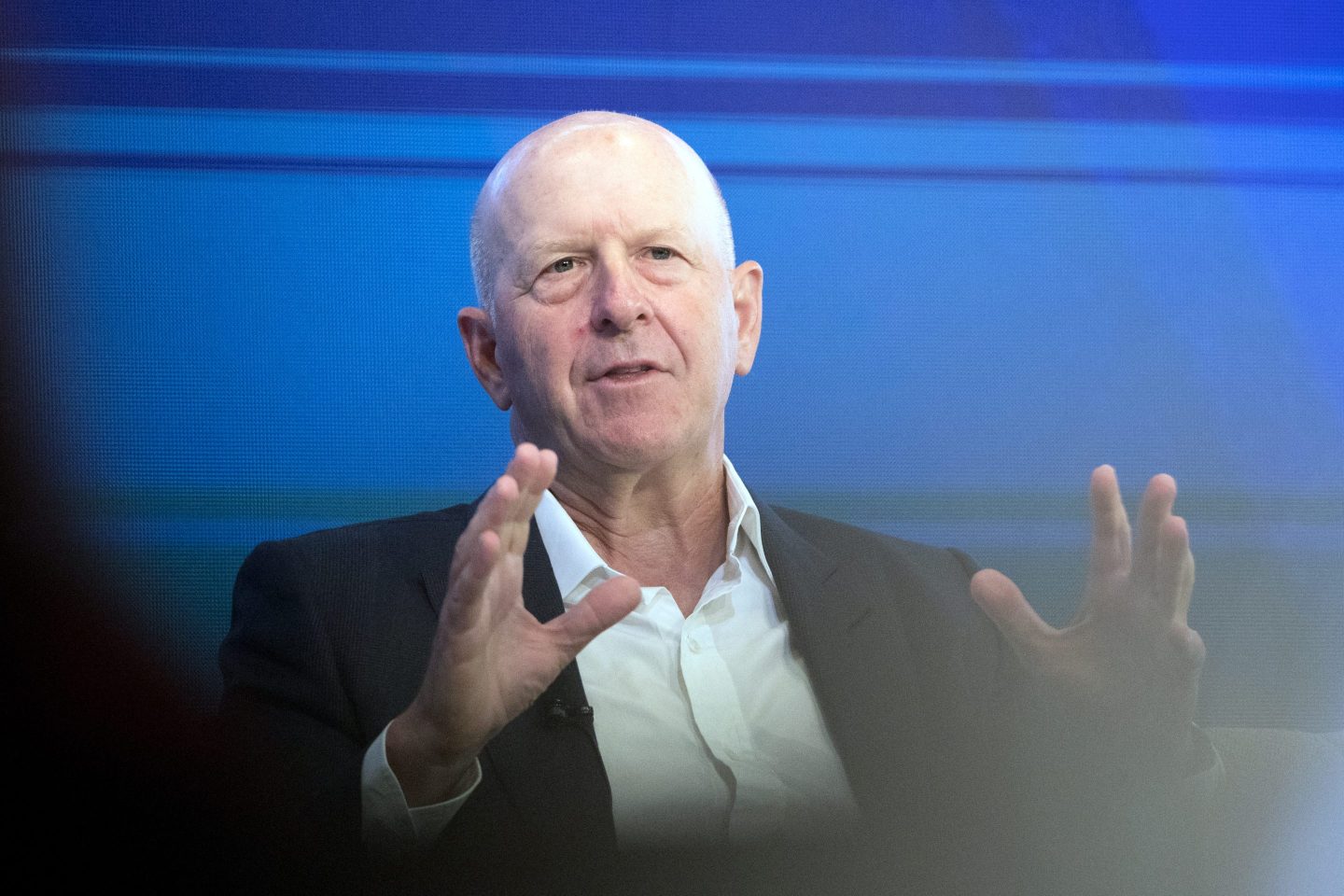Goldman Sachs is refusing to back away from its analysis that Americans—not foreign exporters or overseas governments—are bearing the majority of costs from President Donald Trump’s sweeping tariffs. The Wall Street giant doubled down this week on chief economist Jan Hatzius’s research as inflation data showed a jump in consumer prices and the political backlash from the White House intensified.
Goldman’s latest report, published on Sunday, maintains that while U.S. businesses have so far shouldered most of the financial pain from tariffs, the share picked up by everyday Americans is set to rise sharply. As of June, consumers had absorbed 22% of total tariff costs, Hatzius calculated, adding the number is projected to leap to 67% by October if the pattern seen in early rounds of Trump’s trade actions continues. For businesses, the burden will shrink from 64% down to 8%, while foreign suppliers will see a modest uptick from 14% to 25% of the tariff impact.
In reaction to the report, Trump erupted in fury on Tuesday, lambasting Goldman CEO David Solomon and, without naming him, Hatzius.
“We stand by the results of this study,” Goldman economist David Mericle told CNBC’s Squawk on the Street the next day. “If the most recent tariffs, like the April tariff, follow the same pattern that we’ve seen with those earliest February tariffs, then eventually, by the fall, we estimate that consumers would bear about two-thirds of the cost.”
Goldman economists forecast the core personal consumption expenditures (PCE) inflation gauge will surge to 3.2% by the end of the year if tariffs remain in place, with about 0.7 percentage points of that attributable directly to the tariff regime—substantially above the underlying trend inflation of 2.4%.
Trump’s rejection—and personal attack
Trump has responded with a barrage of posts, interviews, and public statements disputing Goldman’s findings. He insists “trillions of dollars are being taken in on tariffs,” arguing companies and governments abroad—not U.S. households—are paying most of the bill. On Tuesday, Trump accused Goldman of consistently missing the mark on both market repercussions and the tariff effects.
“David Solomon and Goldman Sachs refuse to give credit where credit is due,” Trump wrote on Truth Social. “They made a bad prediction a long time ago on both the Market repercussion and the Tariffs themselves, and they were wrong, just like they are wrong about so much else.“
Analysts say Trump’s attacks on Wall Street figures, coupled with his vocal push for Federal Reserve rate cuts, reflect a calculated strategy to undermine critics and reinforce a pro-tariff narrative—even as evidence mounts that consumers face rising prices at the register. Financial experts warn ignoring the pass-through effect of tariffs onto consumers could muddle the debate on inflation, especially as the Federal Reserve and investors gauge long-term risks.
While the president’s advisers and some Trump administration officials contend there’s no hard evidence tariffs have caused inflation, analysts aside from Goldman Sachs—including those at Morgan Stanley and the Committee for a Responsible Federal Budget—say the true burden will only become more apparent as new rounds of tariffs embed themselves deeper in supply chains and pricing structures.
For this story, Fortune used generative AI to help with an initial draft. An editor verified the accuracy of the information before publishing.












